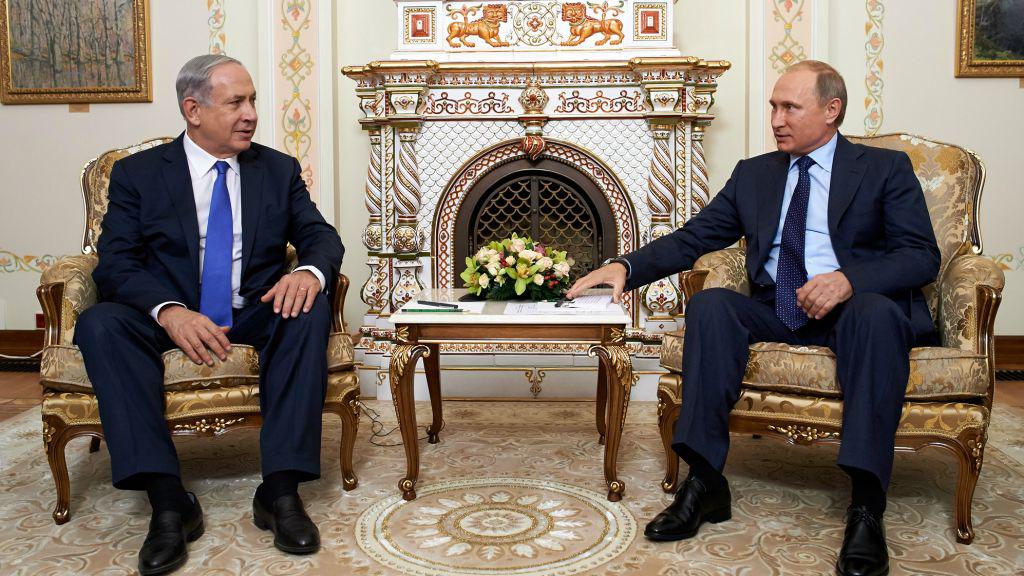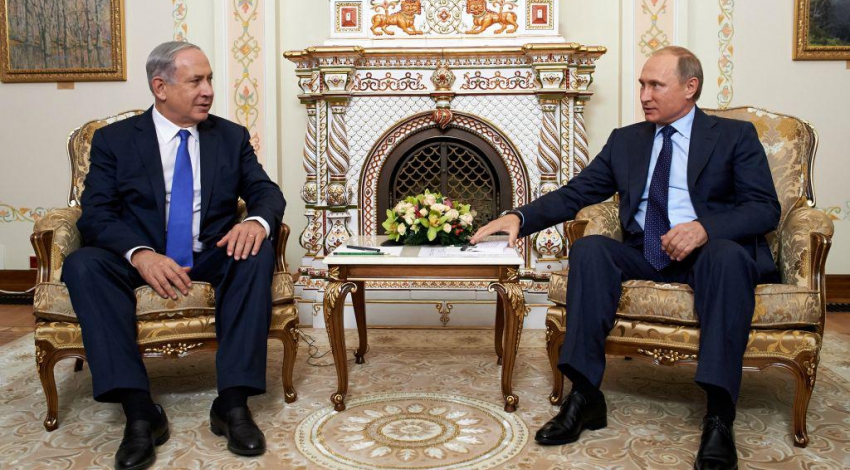Whilst relations between Tel Aviv and the White House have increasingly soured in recent years, and as echoes of Cold War tensions once again permeate Washington�s dialogue with Moscow, Netanyahu sought to present Israel�s ties with Russia as very positive.
However, Netanyahu believes that he is not seeking to replace Washington as Israel�s closest ally, as he wrapped up his fourth visit to Moscow in a year, which had touted the increasingly warm ties between Israel and Russia.
According to Deutsche Welle, some media experts say that closer ties between Russia and Israel potentially make the Kremlin a strategic player across the Middle East.
Both Putin and Netanyahu figure to gain from this new relationship. The difference is that while the boss of the Kremlin has virtually nothing to lose, the same cannot be said of his Israeli counterpart.
Turkey, Russia bridging the gap
Under intense pressure from internal and external pressure due to its economic troubles, now Ankara is trying to bridge its gap with Moscow.
Within a few days, Turkish President Recep Tayyip Erdogan, has wrote two letters to his Russian counterpart Vladimir Putin, first to congratulate the Russia's National Day.
Having received no reply, Erdogan sent another letter to Kremlin and apologizing Putin over death of Russian pilot.
On June 26, RT confirmed that the Putin has received a letter in which Erdogan apologized for the death of the pilot who was killed when a Russian jet was downed over the Syrian-Turkish border last November. Erdogan also expressed readiness to restore relations with Moscow.
But later, Prime Minister Binali Yildirim said Turkey has only expressed regrets to Russia over a downed jet in Syria, denying reports of an apology.
The incident involving the downing of the Russian Su-24 bomber led to the worst deterioration of Turkish-Russian relations in recent history, with Russia describing it as a �stab in the back.�
[caption id="attachment_220906" align="aligncenter" width="445"]
 Israeli PM Benjamin Netanyahu with Russian President Vladimir Putin in Moscow, September 21, 2015.[/caption]
Israeli PM Benjamin Netanyahu with Russian President Vladimir Putin in Moscow, September 21, 2015.[/caption]Turkey-Israel relations
Relations between Israel and what was once its principal Muslim ally crumbled after Israeli marines stormed an activist ship in May 2010 to enforce a naval blockade of the Hamas-run Gaza Strip and killed 10 Turks on board.
After 7 year, Turkey has resumed its normal relations with Israel and inked a deal which will see Israel provide economic compensation worth $20m to the families of the 10 Turkish citizens killed by Israeli forces who raided the six-ship�flotilla heading to break the Israeli siege on Gaza and provide humanitarian aid to the almost two million Palestinians living there.
In addition to the compensation, the agreement will allow Turkey to deliver humanitarian aid, build a 200-bed hospital, a housing project and a desalination plant in Gaza, under the condition that materials go through the Israeli port of Ashdod first.
On June 27, Israeli media reports said that Turkey had agreed to use its influence with Hamas to halt attacks on Israel and help recover the remains of two Israeli soldiers killed in the territory during a war in 2014. Turkish officials denied those reports, however.
Before the diplomatic rupture in 2010, when both sides recalled their ambassadors, Turkey and Israel maintained close economic and military ties. Despite the crisis, trade continued, exceeding $5�billion in 2014, according to the Washington-based Brookings Institution.
Making distance between Iran and Russia
In the meantime, Israel's hidden role could be traced in guiding Russia and Turkey and one of this indication could be seen in Putin and Netanyahu recent meetings. It also seems that Israel is trying to made distance between Iran and Russia and prevent the fall of Erdogan's government.
According to media reports, the Israel-Turkey reconciliation agreement for restoring full normalization between the two sides will restart intelligence and security cooperation between the two countries and entail joint military exercises, and investments in energy and defense.
Probably, some changes await Russian policy toward Iran, Syria and Turkey and the amount of Israel success in accomplishing its goal to make distance between Moscow from Tehran and safeguarding the Syrian Golan Heights would be defined in near future.











